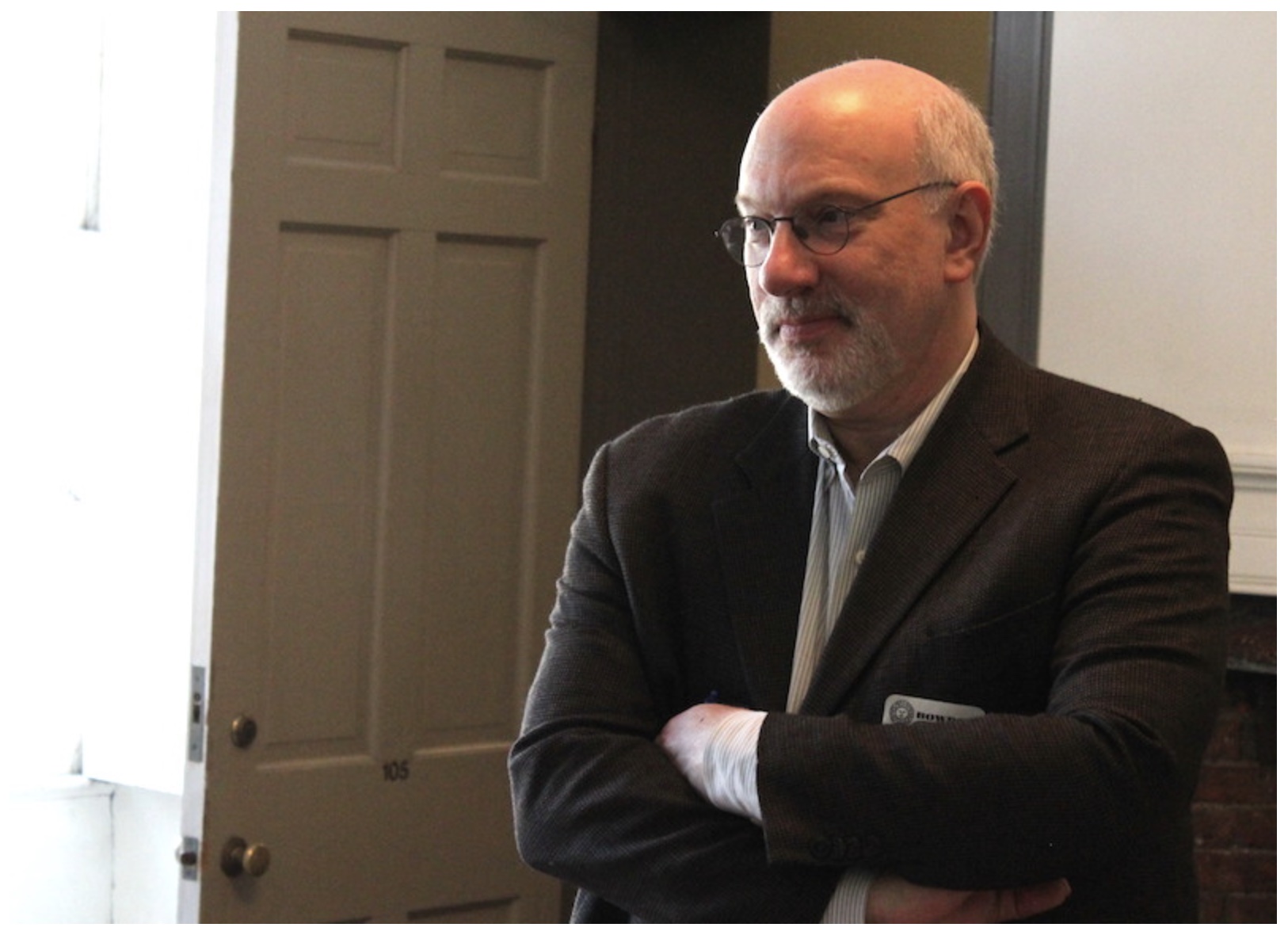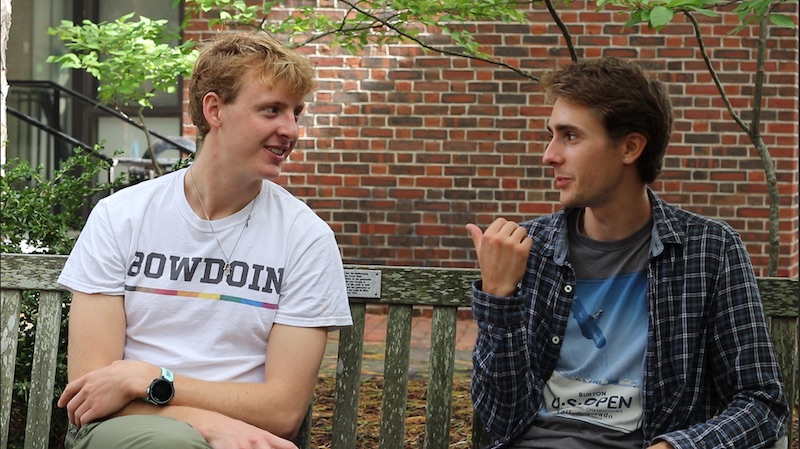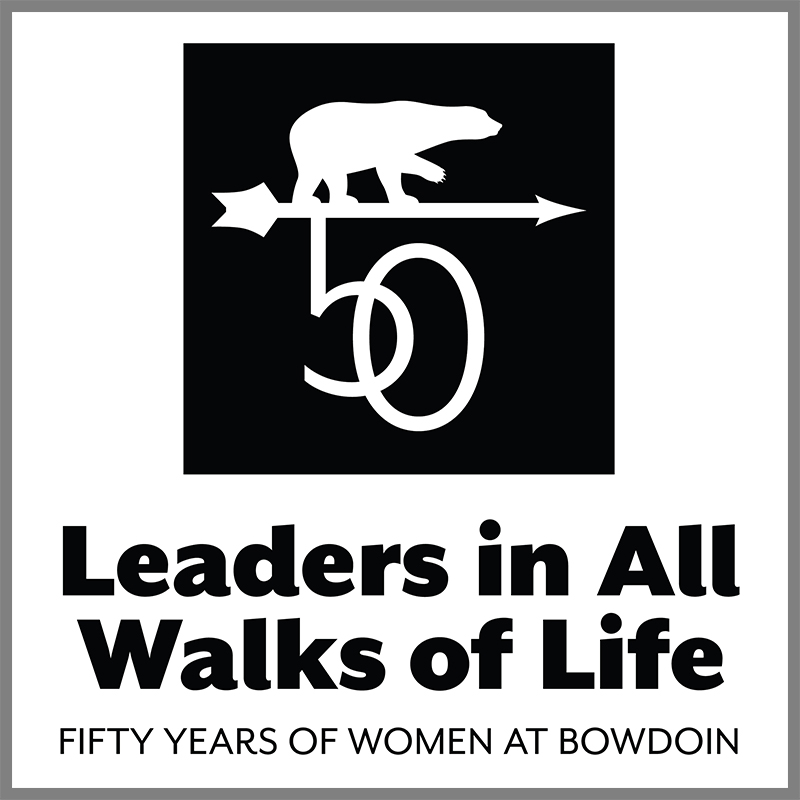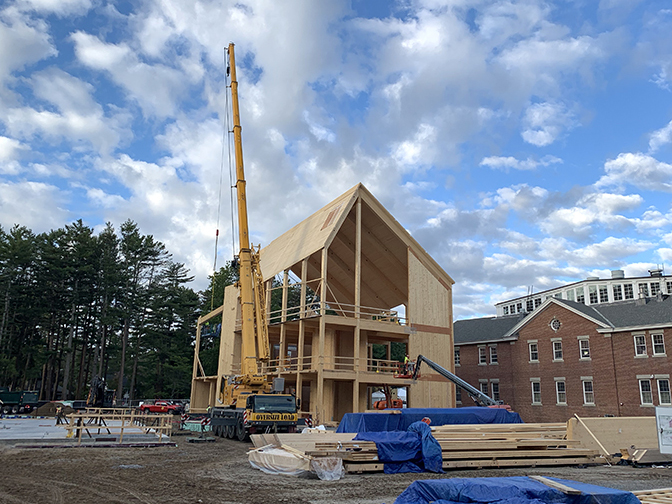Alumni Donors From Class of 1976 Meet Student Researchers






Mary G. O’Connell worked as an executive recruiter for 30 years, placing young and old professionals in new jobs. After seeing how helpful it was for recent college graduates to have had research experience, she and her husband, Peter J. Grua, established the Grua/O’Connell Faculty-Student Research Fund in 2008 specifically to support undergraduate research.
Students in all classes, and in all majors, can apply to receive up to $2,000 from the Grua/O’Connell Fund to cover research-related expenses, such as lab equipment and books, or travel costs to visit, for example, an archive or academic conference. O’Connell’s said it was important to her to give students opportunities to present their work, to gain the kind of public speaking experience that can serve them throughout their careers.
At a recent lunch in Torrey Barn, Grua and O’Connell got the chance to meet this year’s 19 awardees. The student recipients are pursuing projects across the disciplines, from music and math to neuroscience and chemistry.
Speaking to all the students at the lunch, Grua pointed out that their support goes a long way. “You all can have an experience that can change your life. And that is really important to use and that is why we continue to do this.”
Three students who received the Grua/O’Connell award spoke briefly about their work. This summer Michael Amano ’17 received a grant to travel in Hiroshima to help the Bowdoin College Museum of Art with an upcoming exhibition that will feature 40 drawings made by children who lived through the US nuclear attacks on the city. Amano tracked down some of these children—who are now in their 70s and 80s—to speak with them about their lives and what it was like growing up in the city after the war.
“The project was important to me,” he said, not least because his grandmother’s family comes from Hiroshima.
Amano received translating assistance from Justin Ehringhaus ’16, who last year studied in Hiroshima on a Japanese government scholarship.
Allison Briggs ’17 described her public health project in Chile, where she studied a mobile organization that visits public schools in Santiago, providing sexual health services and education to teenagers. “I culminated this investigation with a 40-page anthropological report written in Spanish analyzing barriers to adolescent sexual health and the efficacy of Espacio Amigable in confronting these issues,” she said. She used a Grua/O’Connell award to travel to Birmingham, Ala., last spring to present her research at a Latin American studies conference.
History professor Allen Wells, who mentored Briggs, said he has learned a lot from advising students who have received Grua/O’Connell Research Awards. Wells is Bowdoin’s Roger Howell, Jr. Professor of History and director of the Latin American studies program.
Wells noted that grants for humanities research are rarer than ones that support science research. “Having a fund like this available for our students to go off and do research is just something wonderful,” he said.
This year’s Grua/O’Connell Research Award recipients and their projects
- Robert Barron ’17, biology: “Mapping a parrotfish hybrid swarm: The world’s largest hybrid zone?”
- Georgia Bolduc ’17, earth and oceanographic sciences: “Carbon Cycling in Maine’s Lakes; a study of dissolved organic carbon trends
- Peter Cohen ’17, math: “A Proposal for Funding to Attend the Joint Meeting of the Indian Mathematics Consortium and the American Mathematical Society
- Jefferson Cuartas ’14, sociology/Asian studies: “Beyond the Storefront: The Korean American Experience in New York City”
- Cameron de Wet ’17, earth and oceanographic sciences: “Using cathodoluminescence to study the mineral kyanite in the only known ultrahigh-pressure rocks in North America”
- William Doak ’17, Romance languages and literatures: “French and Italian Cafe Spaces and the Third Places They Create in the 20th and 21st Centuries”
- Harrison Fisher ’17, neuroscience, “Applying Granger Causality to Assess Directionality of Theta Oscillations During Episodic Memory Retrieval”
- Adam Glynn ’17, Romance languages and literatures: “Dante’s contrappasso in Italian and American horror films”
- Malcolm Groves ’17, chemistry: “Excited-State Intermolecular Proton Transfer in Aminonaphthols”
- Starling Irving ’17, English: “The New England Heroin Epidemic and Heroin-Related Incarcerations”
- Arindam Jurakhan ’17, music: “Music Composition Honors Project”
- Casey Krause ’17, German: “Between Turkey and Germany, from Mutterzunge to Kanak Sprak: Linguistic and Spatial Identities in 20th Century Turkish-German Migrant Literature”
- Pieter Martino ’17, biology: “Linking stress phenotype of blue mussels to standing genetic variation amidst a changing climate”
- Hannah Miller ’17, earth and oceanographic sciences, “Seasonal Variability in Carbonate Chemistry of Soft-shell Clam Mudflats, Gulf of Maine”
- Abby Motycka ’17, Africana studies and history: “White Backlash in the Civil Rights Movement: A Study of the White Responses to the Little Rock Crisis of 1957”
- Alexander Poblete ’17, chemistry: “The Kinetics of Excited State Proton Transfer in Aqueous Reverse Micelles”
- Meredith Stanhope ’18, neuroscience: “Investigating the binding capabilities of multiple isoforms of C-type allatostatin to previously identified receptor sequences from Homarus americanus”
- Lydia Woodward ’17, history: “The Politics of Integration: How Portland’s Central African Immigrants, Refugees, and Asylum Seekers Navigate the Law”
- Cordelia Zars ’17, music: “From Cantigas to Colonization: The Evolution of Spanish Song”



